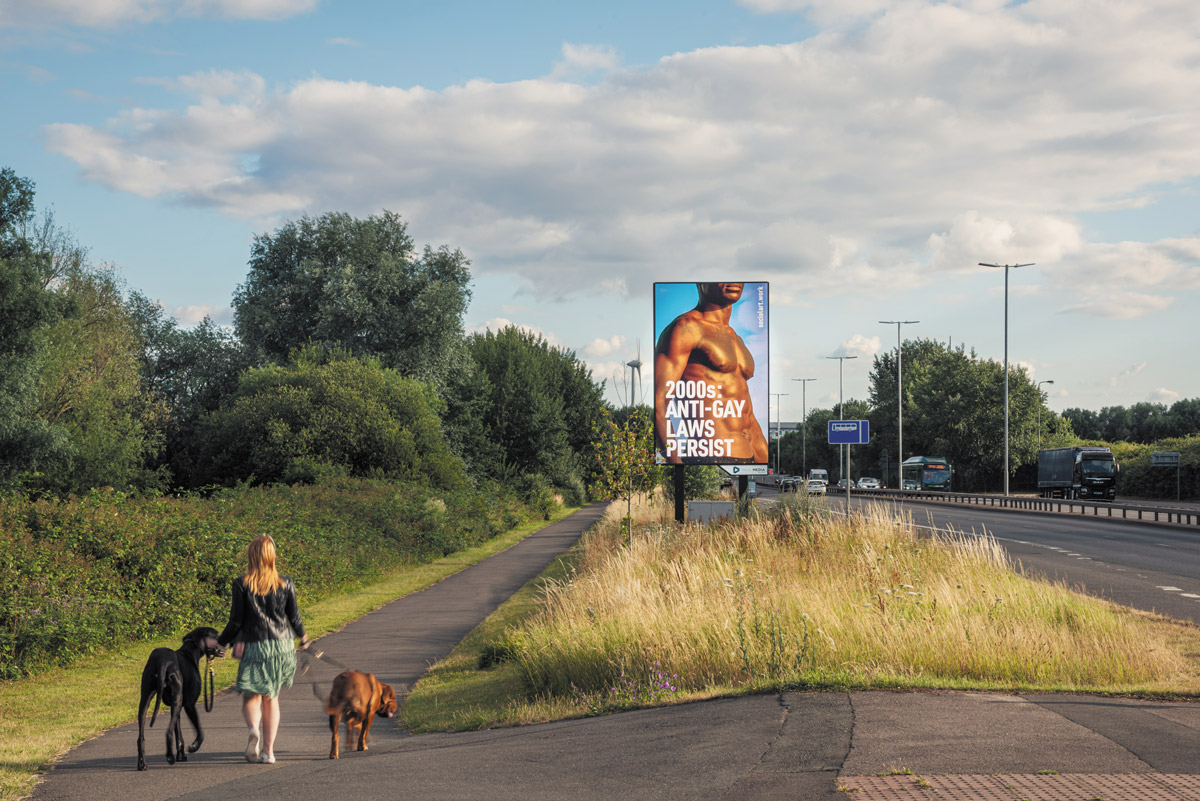We use the cookies _ga, _gat, _gid to collect anonymous data about how you use this site. OK.

2022.3.4
2000s: Anti-Gay Laws Persist, 2022
2022
Digital billboards
4 of 5 from
Five Decades of Pride
352 x 540px, 352 x 576px, 480 x 720px, 504 x 756px, 576 x 880px, 600 x 280px, 612 x 306px, 640 x 1152px, 696 x 360px, 720 x 357px, 864 x 432px, 880 x 576px, 900 x 450px, 1080 x 1920px, 1224 x 324px, 1280 x 360px, 2160 x 3840px jpeg RGB colour
July 2022
UK-wide
The 2000s were still affected by persistent anti-gay laws. Section 28 in the UK, for example, wasn’t repealed until 2003.
The repeal Bill, which passed into law on 18 September 2003, was described by Ben Summerskill, then Chief Executive of Stonewall, as 'hugely important because it is totemic ... [Section 28] was deliberately designed to stigmatise and demean 3 million people.'
As recently as 2013, police forces across England and Wales visited gay and bisexual men demanding DNA samples for a database of serious sexual and violent offenders.
Men convicted in the 1950, 60s and 70s for consensual adult same-sex acts were being grouped with convicted child sex abusers and rapists.
Many of the men in question were elderly. Many were now married. The police were able to demand DNA samples and threaten the men with arrest if they refused to comply.



